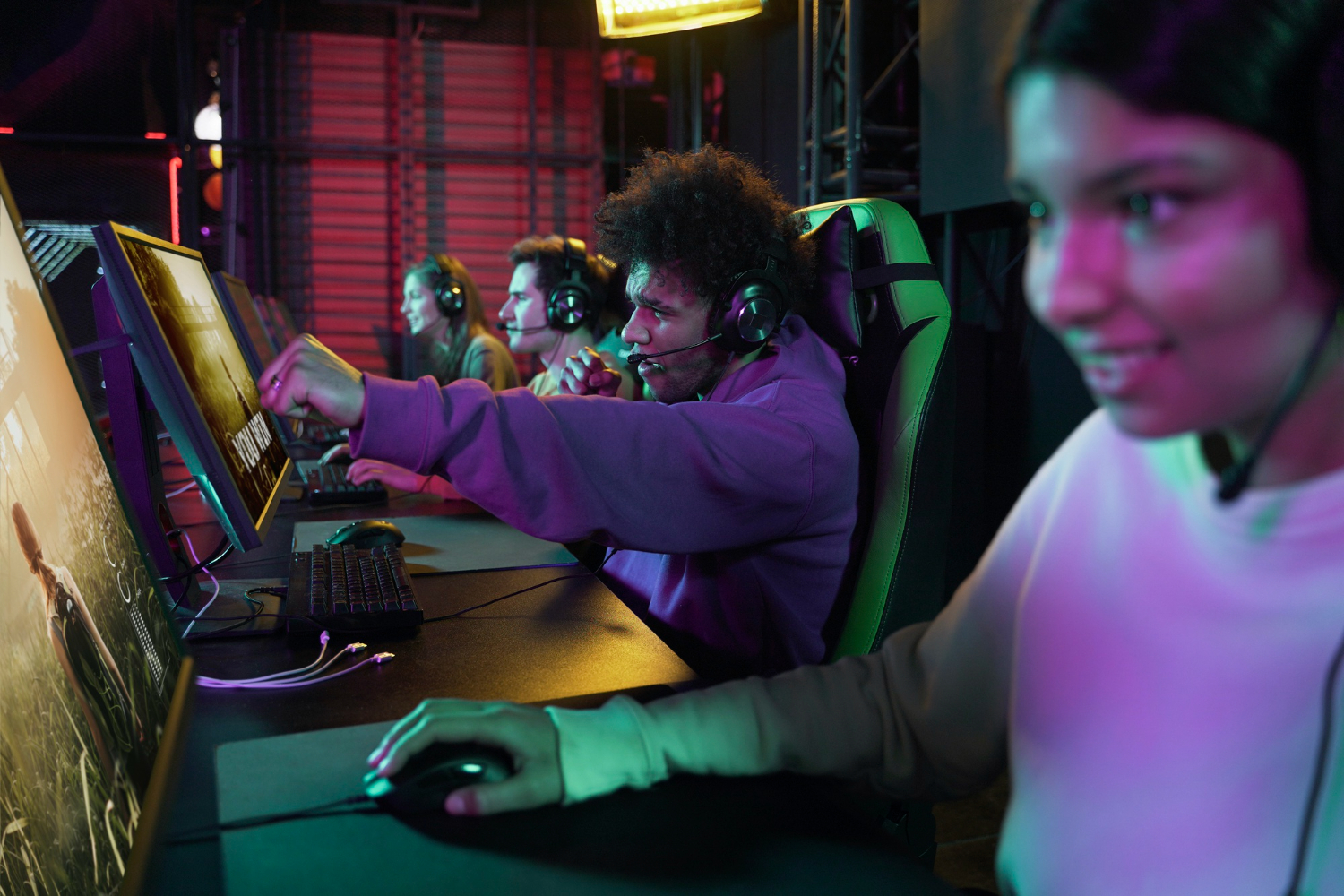
Betting with Virtual Assets: How In-Game Skins Became Gambling Currency
The video game industry has grown tremendously in recent years, with games featuring complex in-game economies. This led to the rise of cosmetic virtual items called “skins” that players can acquire to customize characters and weapons. While initially only serving decorative purposes, skins took on real-world value based on rarity and demand. This resulted in the emergence of skin gambling — an unregulated multibillion-dollar industry involving betting skins for a chance to win big.
Gambling and Its Types
Gambling is a diverse and widespread activity that has been part of human culture for centuries. It involves risking money or valuables on an uncertain outcome with the hope of winning more in return. Throughout history, various forms of gambling have evolved, catering to different preferences and interests. Here, we’ll explore the types of gambling and provide a brief description of each:
- Casino Gambling:
- Casinos, known for their diverse offerings, including top casino online platforms, provide a wide range of games of chance.
- Common casino games include slots, blackjack, poker, roulette, and baccarat.
- Players wager money against the house, and the odds are typically in favor of the casino. Anyone can choose a top casino online on trusted websites, allowing people to access these games conveniently from the comfort of your own home or on mobile devices.
- Sports Betting:
- Involves placing bets on the outcomes of sporting events.
- Bets can be placed on various aspects, such as the final score, point spreads, and player statistics.
- Sportsbooks and online platforms facilitate sports betting.
- Lotteries:
- Lotteries are games of chance where participants purchase tickets with random numbers.
- Winning numbers are drawn at a specific time, and those with matching numbers win prizes.
- Lottery proceeds often go to support public initiatives like education and infrastructure.
- Poker:
- Poker is a card game that combines skill and luck.
- Players compete against each other by betting on the strength of their card combinations.
- Various forms of poker exist, including Texas Hold’em and Omaha.
- Horse Racing Betting:
- Involves wagering on the outcome of horse races.
- Bets can be placed on individual horses to win, place, or show, as well as exotic bets like exactas and trifectas.
- In-Play Betting:
- Also known as live betting, this involves placing bets during the course of an ongoing event, such as a sports match.
- Odds fluctuate in real-time based on the game’s progress.
- Skin Gambling:
- Skin gambling represents the intersection of video games and gambling.
- It involves betting cosmetic virtual items (skins) from games on third-party websites in various games of chance.
- Winnings can be exchanged for real money or other valuable items.
Each type of gambling offers its own set of thrills, challenges, and risks. While some rely heavily on luck, others require skill and strategy. It’s important for individuals to gamble responsibly and be aware of the potential consequences of excessive gambling. Regulations and oversight vary by region, so it’s essential to be informed about local gambling laws and seek help if gambling becomes a problem.
Understanding Skin Gambling
Skin gambling represents the intersection of video games and gambling. They have become coveted virtual commodities. Third-party websites operate as gambling platforms, allowing players to wager skins in various games of chance. Winnings can be exchanged for real money through marketplaces.
This form of gambling occurs entirely online, sidestepping regulations governing traditional gambling. Bets involve skins worth thousands of dollars based on rarity and player demand on gray marketplaces. Industry experts have raised concerns about the lack of age verification and oversight.
| Type | Description |
| Items | Cosmetic in-game assets like character outfits and weapon skins |
| Wagers | Users deposit skins into third-party sites to bet |
| Games | Coin flips, roulette, jackpot, betting on esports matches |
| Winnings | Rare skins or cryptocurrency payouts |
In summary, skin gambling represents an unregulated convergence of gaming and gambling interests.
Explosive Growth of an Underground Economy
Skin gambling experienced a surge in popularity in 2013, initially centered around the game Counter-Strike: Global Offensive (CS:GO). CS:GO weapon skins became the default betting currency on hundreds of gambling websites that sprang up. At its peak, prominent sites like CSGOLounge processed billions in betting volume.
The proliferation continued until 2016 when game platform Steam prohibited using its system for commercial gambling sites. However, non-Steam gambling sites quickly replaced deactivated sites. Cryptocurrency also became a common medium to facilitate skin gambling transactions.
Experts previously projected the industry could reach $20 billion in revenues by 2025 driven by the continued appeal of wagering virtual assets. However, due to legal restrictions surrounding unregulated online gambling, it is unlikely the industry will ever reach that level of growth. The demand has declined in recent years as more measures are put in place to curb unregulated skin gambling.
Murky Legality and Ethical Quandaries
Skin gambling exists in a legal gray area which attracts continued controversy and lawsuits. Critics argue game publishers enable unregulated gambling by allowing skin trading on third-party sites, despite publicly denying the real-world value of skins.
The opaque nature of skin gambling transactions also raises doubts regarding fair odds, house advantages, and problem gambling risks. Industry proponents argue skins have no intrinsic value and do not constitute real gambling. However, the parallels to conventional online gambling and large sums involved weaken this viewpoint.
Overall, the intersection of video games and gambling in a legal vacuum raises pressing ethical issues regarding duty of care and consumer protection. Calls for reform indicate authorities are monitoring skin gambling closely.
Key issues highlighted:
- Exists in a legal gray area
- Critics allege publishers enable unregulated gambling
- Concerns around fair odds and problem gambling risks
- Authorities appear to be monitoring the situation
The Decline of Skin Gambling in the Modern Era
While skin gambling saw massive growth in previous years, the industry has declined significantly since its unregulated heyday. In 2023, skin gambling sites are scarce, and most prominent sites have shut down. This is due to increased legal crackdowns that make it difficult for sites to obtain even offshore gambling licenses.
Without licenses, skin gambling sites operate in legal gray areas, and many are outright illegal. This raises risks of scams, fraud, and loss of skins with no recourse. The decline means finding active skin gambling sites in 2023 requires obscure searches on fringe parts of the internet, a risky proposition.
Experts note it is now much simpler and safer for gamers to use legal real-money gambling sites. The risks and anonymity of skin gambling pale in comparison to secure online betting with cash at licensed sites. These offer protection for players, accountability, and clearly defined terms and odds.
Conclusion
Skin gambling pioneered a new form of virtual asset wagering that transformed elements of gaming and gambling. However, its meteoric growth occurred in a largely unregulated environment that raised multiple ethical and legal concerns.
While demand persists for betting on virtual in-game items, increased scrutiny is leading to decline. Legal crackdowns have shut down prominent sites and made licensing difficult even in offshore havens. Remaining sites operate in dubious legal territory, raising risks for users.
Experts recommend licensed real-money betting as a safer, more transparent option. The unregulated heyday of skin gambling appears to be over. However, its legacy will likely catalyze efforts to modernize regulations for a digital economy.
Stay informed
Recent articles
Quickly browse the latest offers, read detailed articles and case studies to get complete information.


